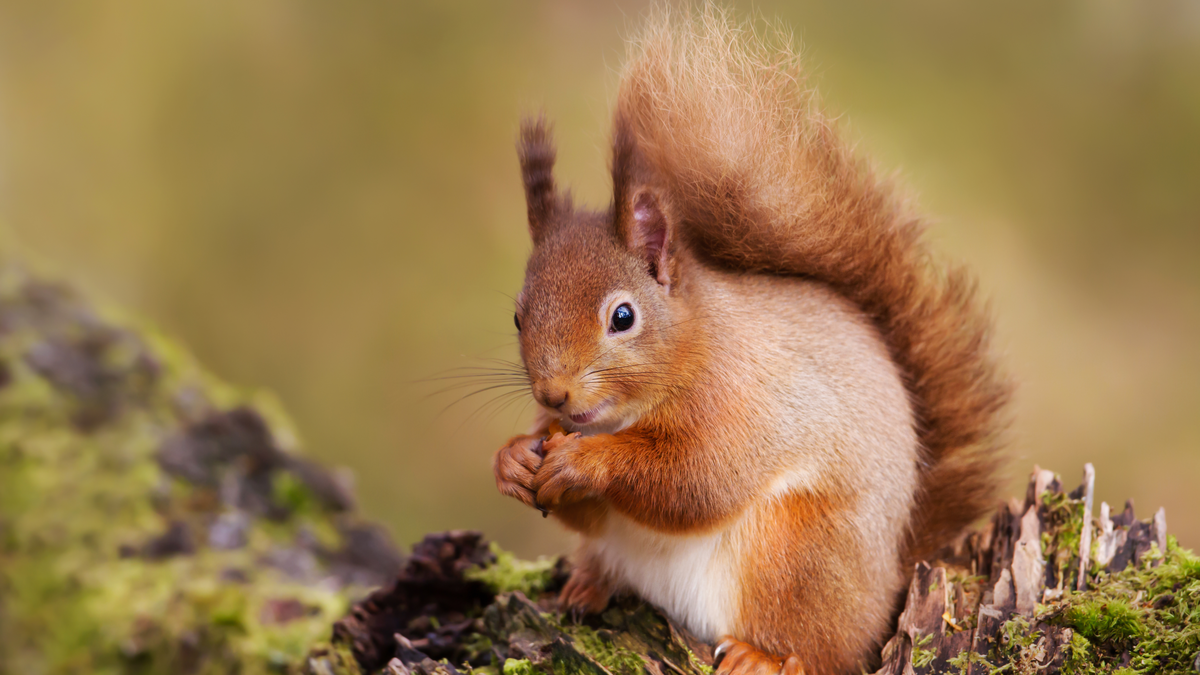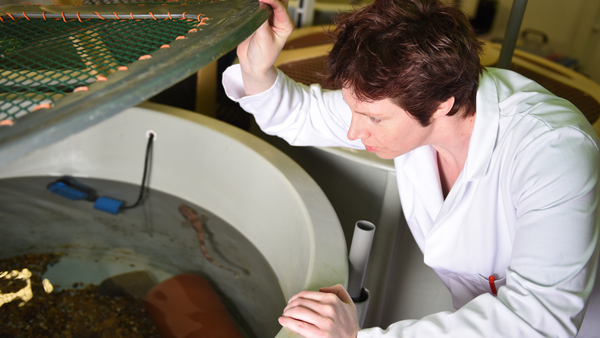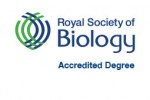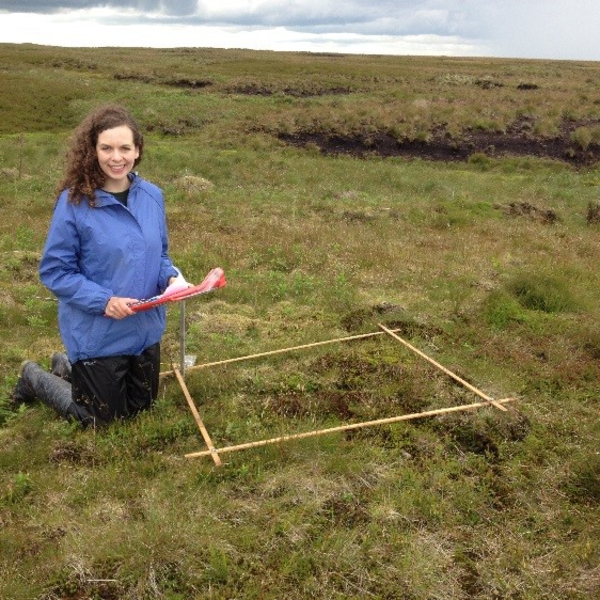Introduction
Develop the knowledge and skills required to conserve biodiversity in the face of rapid increases in human impacts on the planet.
Study Information
At a Glance
- Learning Mode
- On Campus Learning
- Degree Qualification
- BSc
- Duration
- 48 months
- Study Mode
- Full Time
- Start Month
- September
- Location of Study
- Aberdeen
- UCAS Code
- C161
- Pathway Programme Available
- Undergraduate Foundation Programme

Conservation Biology focuses on the skills you need to explore strategies for conserving biodiversity in the face of rapid increases in human impacts on the planet. You build on expertise in ecology, zoology, plant and soil science, evolution and genetics. You learn about the arguments and the effectiveness of different approaches to conservation and develop a conceptual and practical understanding of conservation. You explore a diversity of case studies in Scotland and internationally to examine the diversity of approaches ranging from the conservation of threatened species to the challenges of working inside and outside of protected areas.
Conservation Biology is naturally cross-disciplinary. You graduate with a deep understanding of the underpinning principles of conservation, an awareness of the range of arguments for and against different strategies, links to a range of practitioners and policy advisors, and quantitative skills useful for managing wildlife and threatened species.
What You'll Study
Each year you take a selection of compulsory courses and optional courses that can be chosen from those on offer across the institution. The first two years lay a foundation for the more specialised third and fourth years.
- Year 1
-
All students take eight courses in year 1. You will also undertake a one-week field course on Plants and their Habitats in Northern Scotland.
Compulsory Courses
- Getting Started at the University of Aberdeen (PD1002)
-
This course, which is prescribed for level 1 undergraduate students and articulating students who are in their first year at the University, is studied entirely online, is studied entirely online, takes approximately 2-3 hours to complete and can be taken in one sitting, or spread across the first 4 weeks of term.
Topics include University orientation overview, equality & diversity, MySkills, health, safety and cyber security, and academic integrity.Successful completion of this course will be recorded on your Transcript as ‘Achieved’.
- Frontiers in Biological Sciences (BI1009)
-
15 Credit Points
Five themes, critical to understanding biology and life, will be explored – Developmental Biology, Microbiology and Disease, Evolution and Behaviour, Immune Systems and Environmental Physiology. Each theme is structured to provide you with core knowledge, insight into how science is practiced, an introduction to current research topics and skills that are useful for investigating, recording and analysing information.
- Diversity of Life 1 (BI1012)
-
15 Credit Points
A walk through the evolutionary tree of life, examining the amazing diversity of major groups of organisms from plants through fungi to early invertebrates. Learn about how each group of organisms arose, their characteristics, and how they achieved success. Practical activities provide hands on experience of materials demonstrating the diversity of plants and invertebrates.
- Ecology and Environmental Science (BI1511)
-
15 Credit Points
This course begins with study of the physical workings of the Earth and the interactions between living organisms and their environments. We then look at the effects humans are having on the planet, potential solutions to global problems and how these are affected by politics, and thoughts on the future.Teaching is by staff with different subject specialisms who give both variety and immediacy to course material.Exposure to the problems we are facing both now and in the future will help you make informed choices in your everyday life.A range of ‘wet’ and computer-based practicals enhance the classroom teaching and develop generic scientific skills.
- Diversity of Life 2 (BI1512)
-
15 Credit Points
- A walk through the evolutionary tree of life, examining the amazing diversity of advanced invertebrates and vertebrates.
- Learn about how each group of organisms arose, their characteristics, and how they achieved success. For example what are the key evolutionary steps enabling life away from the water? How do birds fly?
- Practical activities provide hands on experience of materials demonstrating the features of invertebrates, amphibians, fish, birds and mammals.
- The Cell (SM1501)
-
15 Credit Points
• Cells are the fundamental unit of life – without them life could not exist, and as such understanding how they function is crucial to our understanding of biology and medical science.• This course provides theoretical knowledge in a diverse range of topics covering the fascinating world of cells, from molecules like DNA, to how different cell types function within our bodies.• All practical classes are research based and will provide theoretical knowledge and skills training in many areas of molecular and cell biology.• Employability skills will also be explored through a highly interactive enterprise session and our online mini course.
Optional Courses
Plus 30 credit points from first half-session courses of choice.
Plus 15 credit points from second half-session courses of choice.
- Year 2
-
In year 2 compulsory courses include Life Sciences, a dedicated Conservation Biology course as well as courses on Ecology, Genes and Evolution and a field course in Zoology. You will also select electives from courses across the university.
Compulsory Courses
- Introduction to Genetics (BI2023)
-
15 Credit Points
Genetics and evolution are inextricably linked and provide the foundation for all other biological concepts. In this course we introduce the subject of genetics from an evolutionary perspective that is informed by genome analysis.A series of lectures and computer workshops will introduce you to the fundamental principles of evolution, genetics and molecular biology. In practical classes you will have opportunity to practise modern molecular techniques.You will also explore ethical dilemmas that arise as a consequence of our potential ability to manipulate genomes.
- Biological Enhanced Skills Training (BEST) (BI2018)
-
15 Credit Points
The course will help you develop or consolidate skills in experimental design, sampling, analysis, presentation, and interpretation of data.
Each week, there are one 1-2 recorded introductory lectures to help you prepare for the computer practicals. In two 2-hour sessions per week you will work through a series of computer-based data tasks, using relevant and realistic biological and environmental themes. The course will introduce you to different types of software which can be used to analyse data, including Excel, Minitab, and R studio.Teaching is informal and friendly. During sessions, staff will chat to you about your progress and provide help where necessary.
- Ecology (BI2020)
-
15 Credit Points
This course builds on themes from introductory ecology courses: effects of biodiversity, disturbance in natural communities, nutrient and energy cycles. herbivory, predation, competition, population dynamics, parasitism, mutualisms and foodwebs. You will develop your abilities to interpret data by applying theory discussed in classes to real-life data sets using short problem-solving exercises linked to each topic. Feedback will help you improve writing and interpretation skills. Extended problem-solving exercises will improve your communication skills, scientific writing and introduce you to valuable approaches to summarising complex datasets in Excel. You will also consider issues around experimental design.
- Conservation Biology (BI2509)
-
15 Credit Points
Lectures and practical classes consider important and controversial conservation issues, encouraging you to discuss and develop your ideas and thinking. A visit to a local nature reserve introduces the management issues and opportunities facing small urban sites. An essay provides you with the opportunity to study a Biodiversity Action Plan species of your choice and to analyse critically the work undertaken to conserve it. Extended problem-solving exercises will develop your skills in diagnosing causes of species decline. Detailed feedback on written work which will help you consolidate your skills in scientific writing and writing for a more general audience.
- Mapping and Monitoring the Environment (GG2510)
-
15 Credit Points
In a digital era of GPS navigators and many online map tools (e.g. Google Maps), there is an increase demand for professionals able to understand and manipulate geographical data and use these to monitor processes at various scales. The course provides a solid background in the acquisition of geographical data, both onshore and offshore with classic field-based and remote sensing techniques. It covers the creation and interpretation of maps and looks at the history of remote sensing and its science as well as providing the essential basis to understanding what a Geographical Information System is.
Optional Courses
NOTE: If students are unable to register for field courses in programme years 1 and 2 then they must register for the courses in programme year 3.
Select a further 30 credit points from courses of choice plus one of the 15 credit point field courses
- Coastal Biodiversity (BI25F2)
-
15 Credit Points
This is a residential field course that uses the University of Aberdeen Lighthouse Field Station up in Cromarty to introduce a range of terrestrial, coastal and marine habitats, and the techniques that are being used to study and manage the diverse species in these ecosystems.
The field course provides an insight into how scientific research and long-term monitoring underpins our understanding and management of biodiversity, and the different organisations responsible for stewardship and conservation across the UK. The course explores how natural and anthropogenic environmental change can influence different coastal ecosystems, and the challenges of managing those ecosystems where there are a range of practitioners, stake-holders and end-users with different and potential conflicting priorities.
Importantly, the course provides “real world” experience of ecological fieldwork, with a focus on how to design, plan and safely execute monitoring programmes for a range of different species and habitats.
Dates for 2024/2025 are 18/05/2025 to 23/05/2025
- Field Biology (BI25F6)
-
15 Credit Points
During day trips from Aberdeen, you will learn and practice a variety of techniques for sampling and identifying organisms in the field.
We will take opportunities to interact with scientists from NGOs and research institutes, who will give instruction on techniques and provide overviews on the remits and opportunities within their organisations.
Group based project work provides skills in team working, data collection, analysis and presentation.
You will develop skills in biological recording by maintaining a detailed record of the field activities in a field notebook.
By visiting and working in a variety of environments you will become familiar with common species, the ecological characteristics of local habitats and have opportunities to apply your classroom learning to the field.
Dates for 2024/2025 are 19th May 2025 to 24th May 2025
- Marine Field Ecology (BI25F9)
-
15 Credit Points
This is a marine biological field course to the Millport Field Centre on the Isle of Cumbrae in the Firth of Clyde. The course introduces you to littoral and nearshore marine life in its natural environment and provides training in methods for sampling, surveying and species identification. You are encouraged to understand the taxonomy and adaptations of marine organisms in an ecological context.
The course typically includes surveying one or more rocky shores and a scientifically renowned sandy shore, sampling plankton and seabed organisms from a small research vessel, and carrying out a group project over two days. Through the various field and laboratory activities and close interaction with course staff, you will deepen your knowledge of marine organisms and their environments, acquire field skills and enhance your abilities in species identification, data collection, analysis, presentation and teamwork.
Dates for 2024–2516–23 May 2025 (Friday to Friday)
Please note that you will be responsible for arranging and paying for your return journey to the ferry terminal in Largs, North Ayrshire, where the class will assemble prior to taking the ferry onto the Isle of Cumbrae. There are good transport links to Largs by road and rail. Detailed guidance on travel options will be provided in advance of the course.
- Field Skills in Ecology and Animal Behaviour (BI25FA)
-
15 Credit Points
This is a residential field course designed to provide you with training in field identification skills, ecological sampling techniques and an understanding of behaviour sampling and measurement. The course is held at the Kelvinside Academy John Duff Lodge, Corgarff, Strathdon, Scotland. Group based project work encourages development of skills in team working, data collection, analysis and presentation.
Dates for 2024-2025 are Friday 16th to Thursday 22nd May 2025.
- The Living Landscape (BI25FB)
-
15 Credit Points
‘The Living Landscape’ is a field course (7 days) based at Strathdon, Scotland. The intention is to enhance students’ understanding of living component of the environment at a meaningful scale. ‘The Living Landscape’ is intended to help students to understand species distributions in a wider geographical and historical context. We believe that, in observing and interpreting the ‘big picture’, students will gain a better appreciation of the past, present and possible future of a living environment.
Dates for 2024/25: 31/5/25 - 6/6/25
- Year 3
-
In year 3 courses include Animal Population Ecology, Plant Biogeography, Ecosystem Processes and Sustainable Resource Management. There will also be a field trip to explore conservation issues around the Highlands and Islands in Scotland.
Compulsory Courses
- Statistical Analysis of Biological Data (BI3010)
-
15 Credit Points
You will utilise a robust approach to statistical analysis, a skill highly valued by employers and researchers.Lectures provide context, background and step-by step guidance on how to conduct and interpret a selection of statistical analyses.Through a series of exercises, you learn to explore data, to specify appropriate linear models for your research question and to interpret their results.Online tests structured around the exercises and lecture content allow you to demonstrate your achievement of course learning outcomes.Working with biological and environmental datasets in a structured and supportive environment, you will gain confidence and proficiency with data analysis.
- Population Ecology (EK3303)
-
15 Credit Points
This course aims to primarily introduce the basic ecological theory and mathematical modelling approaches required to study the dynamics of animal populations, especially those populations which are managed for conservation or sustainable exploitation.
- Conservation in Practice (BI3806)
-
15 Credit Points
This course examines the practical interface between conservation theories and implementation, examining how conservation approaches are applied in practice to conserve species, habitats and ecosystems, to inform policy-makers and to integrate stakeholders. This is an interactive course that encourages debate and discussion. The course aims to bridge the gap between the theory you will have learnt in second year Conservation Biology and the applied conservation issues of the world today. You will be able to meet a range of academics, as well as policy advisers and practitioners from various organisations through a field visit and guest speakers, and we hope this enhances your awareness and enjoyment of the subject.The lectures, discussions, tutorials and fieldtrip will provide insights into the professional environmental sector which may influence your career decisions. By producing a research grant proposal, an infographic and critiquing current issues, you will gain practice in skills relevant to the practical implementation of conservation goals, providing you with the opportunity to develop transferable skills in synthesising and displaying information, critical evaluation and research project design.
- Gateway to Honours Project (BI3511)
-
This non-credit bearing course will facilitate your preparation for your Honours project.
Lectures will clarify expectations for project work and provide training in risk assessment, consideration of ethical issues, environmental impacts and project planning.
Resources to help you define and plan your project will be made available through MyAberdeen, helping you to be confident that your project planning is sufficiently advanced by the end of your Programme Year 3.
Submission of an agreed (with your supervisor) project outline, completed checklists and preliminary risk assessment will allow you to demonstrate engagement with your project.
- Remote Sensing and Geographical Information Systems (GG3069)
-
15 Credit Points
This course covers the practical aspects of remote sensing and GIS. It is entirely hands on, and students learn through a series of exercises that becomes progressively more challenging and more specific to different geographical disciplines. By the end of the course students will be familiar with key remote sensing and GIS software and will have learned their fundamental tools. These are highly demanded skills in the job market at present, so this course is strategic for those students potentially interested in a job where these types of tools are employed.
- Field Ecology Skills (EK35F1)
-
15 Credit Points
The field course is non-residential and involves day trips from Aberdeen to local sites. You will learn about and practice a range of methodologies, approaches and techniques used by ecological consultants and people working for conservation organisations to determine the presence/absence of various animal species, estimates of population size and mapping vegetation. Techniques will include; Habitat Survey (plants; Phase 1 / UKHab), creating a habitat map using GIS, bird identification and census techniques, freshwater invertebrate sampling, surveys of mammal populations (e.g. bats, badgers, otters, red squirrels) and camera trapping.
Dates for 2024/2025 are 19/5/25 - 29/5/25
- Animal Evolution and Biodiversity (ZO3515)
-
15 Credit Points
This course emphasises how evolution has shaped the spatial and temporal patterns of animal biodiversity, and how we can use molecular genetic tools to gain a better understanding of what biodiversity means and how we can measure it.
In lectures you are guided through the theory of evolution and how this influences patterns of genetic diversity and affects biodiversity.
In practical sessions, you gain insight into the microevolutionary processes that can shape genetic variation in natural populations and some tools used to study the evolution of biodiversity.
Through a poster presentation you gain specialised knowledge and experience communicating complex ideas and synthesizing information about the latest developments in evolutionary biology.
Through written assignments you will consider how evolutionary processes shape biodiversity in Scotland and how we can maintain this biodiversity through effective stewardship, conservation and management.
Optional Courses
Select a further 30 credit points from courses of choice.
- Year 4
-
In year 4, the Honours year, you will carry out a research project as well as writing an extended essay and completing advanced courses of your choosing.
Compulsory Courses
- SBS Honours Project (BI4016)
-
45 Credit Points
In this course you will take your scientific skills to the next level, by carrying out an independent research project within the research group of an academic supervisor. In the span of an entire semester, you will execute the full life cycle of a research project, from initial planning to data collection, analysis and write-up as a manuscript. The course will also focus on developing generic professional skills through workshops and tutorials, providing you with a diverse toolkit for the next stages of your career in biological science or related professional fields.
Course highlights:
- A wide variety of projects, involving fieldwork, labwork and/or computational work
- Developing academic scholarship in a topic of your interest
- Time-management of data collection, data analysis and write-up
- Presenting research outputs in the form of a written thesis in the style of a research paper
- Workshops to help you plan for the next steps in your academic or professional career
- Wildlife Conservation and Management: Concepts and Practice (ZO4541)
-
15 Credit Points
This course develops your knowledge and skills in analysing field data on changes in the distribution, abundance and survival of animal populations.
Practical work applying quantitative tools used in modern wildlife management will give you analytical and critical analysis skills valued by employers.
Guest speakers present case studies illustrating the application of these tools to current conservation and wildlife management problems.
You debate controversial issues that are informed by scientific evidence.
Each practical contributes a clue to solving an ecological problem and you will assemble these clues to formulate a management plan aimed at a conservation/wildlife management issue.
Optional Courses
Plus 60 credit points from courses of choice, at least 30 of which must be from courses delivered by the School of Biological Sciences (i.e. BI, EK, EV, FY, PL, or ZO courses) at level 4.
NOTE: A graduating curriculum for the Honours programme must include 90 credit points from Level 4 courses.
We will endeavour to make all course options available. However, these may be subject to change - see our Student Terms and Conditions page.
How You'll Study
Combine practice and theory
Typically, one third of your class time is practical and many courses include full-day practical classes and field visits. Most students take at least one residential field trip during their degree; these trips bring the subjects to life and provide the opportunity to make great friendships and get to know staff members.
Research experience
You are actively involved in scientific research throughout your degree. In Year 4, you conduct independent research which can be pivotal to your career choice, whether it be in dolphins, water voles, rare plants, tropical forest ecology, climate change in the Arctic, or any one of a diverse range of other exciting topics.
Engaging and inspiring teaching
Our teaching methods are diverse, innovative and based on research on how students learn. For example, we use problem-based learning approaches, creative presentations, peer and self-assessment, presenting posters in public meetings, writing and editing wikis, writing grant proposals, science writing for publication, and the creation of portfolios using multi-media.
Opportunities for Study Abroad and work-related learning
You can take advantage of an optional year-out on a work placement and study abroad is encouraged for students in their 2nd year. We invite employers and volunteering organisations to come and meet our students at our career evenings and there are opportunities for students to work with our partner institutions within and outside of Aberdeen.
Learning Methods
- Field Work
- Group Projects
- Lab Work
- Lectures
- Research
- Tutorials
Assessment Methods
Students are assessed by any combination of three assessment methods:
- coursework such as essays and reports completed throughout the course;
- practical assessments of the skills and competencies learnt on the course; and
- written examinations at the end of each course.
The exact mix of these methods differs between subject areas, year of study and individual courses.
Honours projects are typically assessed on the basis of a written dissertation.
Why Study Conservation Biology?
- The University of Aberdeen is uniquely placed to teach Conservation Biology. The Cairngorms National Park is on our doorstep and there is a broad range of outstanding habitats and species within easy reach. We are also closely linked to various conservation organisations, government institutes and policy advisors.
- In the School of Biological Sciences the strong disciplines of Zoology, Ecology and Plant & Soil Science forms the basis of the course with contributions from a range of other disciplines.
- Staff are active in conservation research, the development of policy and work in close collaboration with a wide range of external organisations.
- Students benefit from field course teaching throughout the programme in a diversity of environments. There is a specific field course to explore conservation issues across Scotland and students may also participate in other field courses in Scotland and overseas (for example in the Mediterranean).
- Our conservation scientists advise the UK Government on climate change mitigation (Professor Pete Smith) and critical loads for air pollutants (Dr Sarah Woodin).
Aberdeen Global Scholarship
The University of Aberdeen is delighted to offer eligible self-funded international on-campus undergraduate students a £6,000 scholarship for every year of their programme.
View the Aberdeen Global ScholarshipEntry Requirements
Qualifications
The information below is provided as a guide only and does not guarantee entry to the University of Aberdeen.
General Entry Requirements
- 2024 Entry
-
SQA Highers
Standard: AABB*
Applicants who have achieved AABB (or better), are encouraged to apply and will be considered. Good performance in additional Highers/ Advanced Highers may be required.
Minimum: BBB*
Applicants who have achieved BBB (or are on course to achieve this by the end of S5) are encouraged to apply and will be considered. Good performance in additional Highers/Advanced Highers will normally be required.
Adjusted: BB*
Applicants who have achieved BB, and who meet one of the widening access criteria are are guaranteed a conditional offer. Good performance in additional Highers/Advanced Highers will be required.
* Including good performance in at least two Mathematics/ Science subjects by the end of your senior phase of education.
More information on our definition of Standard, Minimum and Adjusted entry qualifications.
A LEVELS
Standard: BBB*
Minimum: BBC*
Adjusted: CCC*
* Including good performance in at least two Mathematics/ Science subjects by the end of your senior phase of education.
More information on our definition of Standard, Minimum and Adjusted entry qualifications.
International Baccalaureate
32 points, including 5, 5, 5 at HL, with two Mathematics/ Science subjects at HL.
Irish Leaving Certificate
5H with 3 at H2 AND 2 at H3 including a minimum of H3 from two Science or Mathematics subjects.
Entry from College
Advanced entry to this degree may be possible from some HNC/HND qualifications, please see www.abdn.ac.uk/study/articulation for more details.
- 2025 Entry
-
SQA Highers
Standard: BBBB*
Applicants who have achieved BBBB (or better), are encouraged to apply and will be considered. Good performance in additional Highers/ Advanced Highers may be required.
Minimum: BBC
Applicants who have achieved BBC at Higher and meet one of the widening participation criteria above are encouraged to apply and are guaranteed an unconditional offer for MA, BSc and BEng degrees.
Adjusted: BB
Applicants who have achieved BB at Higher, and who meet one of the widening participation criteria above are encouraged to apply and are guaranteed an adjusted conditional offer for MA, BSc and BEng degrees.
We would expect to issue a conditional offer asking for one additional C grade at Higher.
Foundation Apprenticeship: One FA is equivalent to a Higher at A. It cannot replace any required subjects.
* Including good performance in at least two Mathematics/ Science subjects by the end of your senior phase of education.
More information on our definition of Standard, Minimum and Adjusted entry qualifications.
A LEVELS
Standard: BBC*
Minimum: BCC*
Adjusted: CCC*
* Including good performance in at least two Mathematics/ Science subjects by the end of your senior phase of education.
More information on our definition of Standard, Minimum and Adjusted entry qualifications.
International Baccalaureate
32 points, including 5, 5, 5 at HL, with two Mathematics/ Science subjects at HL.
Irish Leaving Certificate
5H with 3 at H2 AND 2 at H3 including a minimum of H3 from two Science or Mathematics subjects.
Entry from College
Advanced entry to this degree may be possible from some HNC/HND qualifications, please see www.abdn.ac.uk/study/articulation for more details.
The information displayed in this section shows a shortened summary of our entry requirements. For more information, or for full entry requirements for Sciences degrees, see our detailed entry requirements section.
English Language Requirements
To study for an Undergraduate degree at the University of Aberdeen it is essential that you can speak, understand, read, and write English fluently. The minimum requirements for this degree are as follows:
IELTS Academic:
OVERALL - 6.0 with: Listening - 5.5; Reading - 5.5; Speaking - 5.5; Writing - 6.0
TOEFL iBT:
OVERALL - 78 with: Listening - 17; Reading - 18; Speaking - 20; Writing - 21
PTE Academic:
OVERALL - 59 with: Listening - 59; Reading - 59; Speaking - 59; Writing - 59
Cambridge English B2 First, C1 Advanced or C2 Proficiency:
OVERALL - 169 with: Listening - 162; Reading - 162; Speaking - 162; Writing - 169
Read more about specific English Language requirements here.
International Applicants who do not meet the Entry Requirements
The University of Aberdeen International Study Centre offers preparation programmes for international students who do not meet the direct entry requirements for undergraduate study. Discover your foundation pathway here.
Fees and Funding
You will be classified as one of the fee categories below.
| Fee category | Cost |
|---|---|
| RUK | £9,535 |
| Tuition Fees for 2025/26 Academic Year | |
| EU / International students | £24,800 |
| Tuition Fees for 2025/26 Academic Year | |
| Self-funded international students commencing eligible undergraduate programmes in 2025/26 will receive a £6,000 tuition waiver for every year of their programme - See full terms and conditions | |
| Home Students | £1,820 |
| Tuition Fees for 2025/26 Academic Year | |
Additional Fees
- In exceptional circumstances there may be additional fees associated with specialist courses, for example field trips. Any additional fees for a course can be found in our Catalogue of Courses.
- For more information about tuition fees for this programme, including payment plans and our refund policy, please visit our Tuition Fees page.
Scholarships and Funding
UK Scholarship
Students from England, Wales and Northern Ireland, who pay tuition fees may be eligible for specific scholarships allowing them to receive additional funding. These are designed to provide assistance to help students support themselves during their time at Aberdeen.
Aberdeen Global Scholarship
The University of Aberdeen is delighted to offer eligible self-funded international on-campus undergraduate students a £6,000 scholarship for every year of their programme. More about this funding opportunity.Funding Database
View all funding options in our Funding Database.
Careers
We are committed to the career progression of our students and we collaborate with the University’s Careers and Employability Service to ensure that you have numerous opportunities to explore career options, develop your employability and connect with employers.
- The expertise and support of a dedicated careers professional who is a specialist in the types of careers and further study undertaken by Biological Science students.
- A mentoring scheme run by the Careers and Employability Service linking current students with professional mentors.
- An annual volunteering fair to connect students with appropriate organisations in conservation and the environment.
- The exploration of possible careers and the development of employability from week 1, via the mandatory “Frontiers of Science” and PD1002 careers course.
- One to one appointments to discuss students’ options, provide practical support around internships, placements and part time work and provide support for effective applications and interviews.
- Regular opportunities through the “speed careering” programme for current students to meet and learn from Biological Sciences graduates.
- Employer input to the design of the curriculum and in talks to students about career opportunities.
- A university-wide co-curriculum programme aimed at developing key employability skills sought by employers.
For more information visit www.abdn.ac.uk/careers or email careers@abdn.ac.uk.
Many career possibilities are open to graduate conservation biologists leading to employment in conservation agencies, National Parks, national and international NGOs, environmental consultancy, environmental protection agencies, environmental law, environmental education, industry, local government environmental departments and research.
Career Opportunities
- Conservation Biologist
- Conservation Scientist
- Environmental Lawyer
- Environmental Protection Officer
- Nature Conservationist
- Researcher
Industry Links
We have strong local, national and international links to industry, government bodies, charities and other research institutions. You will benefit in several ways:
- Exposure to policy-makers, practitioners, regulatory professionals and experts.
- Our curriculum is informed by an employer advisory board that provides insight into changing requirements of employers.
- You can take advantage of our collaborators' facilities and expertise for your research projects or placement.
Accreditation
Graduates from Accredited programmes will receive one year of free membership of the Royal Society of Biology in their final year of their degree. This will open up networks at a crucial time when applying for jobs. The Royal Society of Biology is the leading professional body for the biological sciences in the United Kingdom. The Society represents over 18,000 biologists from all areas of the life sciences, as well as over 100 organisations which make up the diverse landscape of biology in the UK and overseas. The Royal Society of Biology offers members unique opportunities to engage with the life sciences and share their passion for biology. Whichever area of biology you wish to gain a career in, membership will help you:
- Stay up to date with what is happening across the life sciences
- Gain additional recognition for your skills and experience
- Develop your professional network
- Demonstrate your support for the future of biology
This degree holds accreditation from
What our Alumni Say
Our Experts
- Programme Coordinator
- Dr Clare Trinder
- Other Experts
- Professor Xavier Lambin
- Dr Sarah Woodin
Information About Staff Changes
You will be taught by a range of experts including professors, lecturers, teaching fellows and postgraduate tutors. However, these may be subject to change - see our Student Terms and Conditions page.
Facilities
Fantastic facilities support our teaching and research, both on and off campus.

Research facilities
Our research facilities on campus include animal holding facilities, greenhouses, fresh and salt-water aquaria, an insectarium, molecular and analytical laboratories, and a state of the art genomics lab.

Lighthouse Field Station
We have our own research and teaching facility, The Lighthouse Field Station which is situated on the Cromarty Firth. In 2020 the station celebrated 30 years of teaching and research on the ecology of seals, dolphins and seabirds.

Science Teaching Hub
Our state-of-the-art Science Teaching Hub provides students with a digitally focussed environment including advanced analytical tools, research-grade equipment and flexible laboratory spaces.
Find out moreDiscover Uni
Discover Uni draws together comparable information in areas students have identified as important in making decisions about what and where to study. You can compare these and other data for different degree programmes in which you are interested.
Get in Touch
Contact Details
- Address
-
Student Recruitment & Admissions
University of Aberdeen
University Office
Regent Walk
Aberdeen
AB24 3FX



